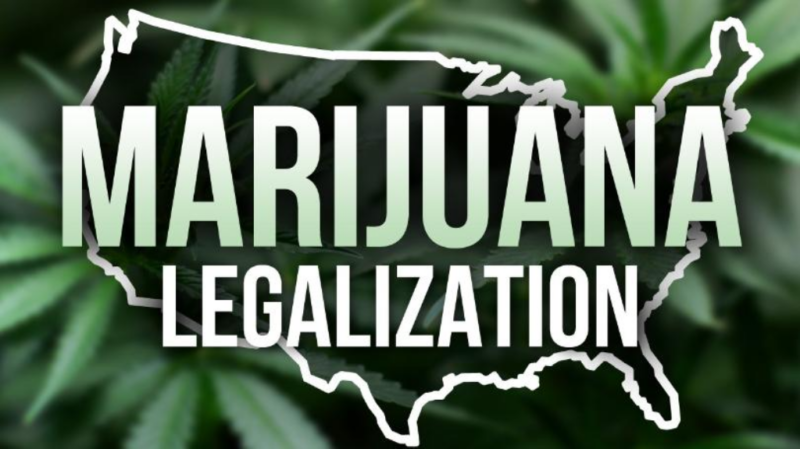
The MORE Act is the first of many steps to reverse and rectify the extensive damage done by prohibition largely affecting Black and brown communities.
Signaling what could be a result of a surge of progressive legislators in Congress, the House on Friday passed the most sweeping bill ever aimed at decriminalizing marijuana at the federal level by removing cannabis from the federal Controlled Substances Act.
Advocates of the measure worked for years behind the scenes with congressional leaders to present the Marijuana Opportunity Reinvestment & Expungement (MORE) Act, legislation that not only deschedules cannabis but also creates a pathway to erase nonviolent federal marijuana convictions. The bill will travel to the Senate, where its future is uncertain. However, a runoff race in Georgia could turn the tide.
The bill is sponsored by Ohio Rep. Jerry Nadler in the House and the Vice President-elect who is also still Sen. Kamala Harris.
Arrests and convictions for the selling and usage of marijuana largely affects Black communities and other communities of color jailed and disenfranchised disproportionately. A 2020 study by the ACLU concluded: “Black people are 3.64 times more likely than white people to be arrested for marijuana possession, notwithstanding comparable usage rates.”
Queen Adesuyi, policy manager for the Office of National Affairs at the Drug Policy Alliance, emphasized the social justice impact during a recent phone conversation about the pending legislation.
“The MORE Act is right now the most sweeping marijuana justice bill in Congress, to ever be considered by Congress,” Adesuyi told NewsOne. “And it builds on the Marijuana Justice Act and includes way more provisions around equity, around eliminating collateral consequences for convictions and really taking steps to repair the harm of criminalization of marijuana.”
It would also prevent the denial of social services resources for those with marijuana convictions, allow those prosecuted an opportunity for record expungement and would protect immigrants at risk of deportation or citizenship denial over a marijuana infraction.
“It’s not about the plant it’s really about how the policies have impacted individuals and families and communities that have really gotten us to the place where we’re finally seeing you know this historic vote where a chamber of Congress is voting to end marijuana criminalization on the federal level,” Adesuyi continued.
Nationally, marijuana prohibition falls under the archaic mentality of respectability politics fueled by Nixon’s “war on drugs,” which targeted Black communities. Public sentiment for the legalization of marijuana is at an all time high. Sixty-eight percent of American voters are in support, while across the country, thirty-three states plus the District of Columbia allow medical marijuana use, while 11 states allow legal access to marijuana for adults.
222 Democrats voted in favor of passing the MORE Act, while six were against it. Five Republicans voted in favor and 158 voted against passing it.
“People support this across the aisle. What brings people to table may differ. For some people they care about this issue because they care about veterans being able to get access to medical marijuana through the VA [Veterans Affairs],” Adesuyi continued. “Some people they care about additional and robust research in the ways that marijuana is actually, has medical benefits. And then for other people, again the criminal justice pieces. And for some people, [it’s] state’s rights.”
Adesuyi admits there were some tough compromise developments between advocates who want progressive reform and legislators who moved to appease more moderate colleagues.
“The version that we worked to introduce is not the exact version that is being voted on entirely,” she said. “There are provisions that have been added last minute that we don’t necessarily approve of. But overall we’re looking at this bill as a huge monumental and historic moment for communities that have been affected by marijuana prohibition.”
For Vice President-elect Harris, her involvement signals a move in a progressive direction; especially to some Black people who are still voicing their concerns around her prior prosecutorial record.
“The hope is that she keeps that same energy in the White House as the future president Biden actually is further behind than she is at this point on marijuana reform,” Adesuyi said. “The hope is that she keeps in mind the promises that she made to communities of color while she was championing this issue in the Senate, and is able to use her influence in the White House to move future President Biden along because his position on marijuana is a non-starter in terms of re-scheduling versus de-scheduling.”
Adesuyi says her hope is that a Biden-Harris administration will move towards the wishes and tone of the people.
“The ideal effort behind a Biden-Harris administration if they’re really about what marijuana justice should be, wouldn’t be to just formally end marijuana prohibition, but to make sure they do it through this racial and economic justice lens,” said.









